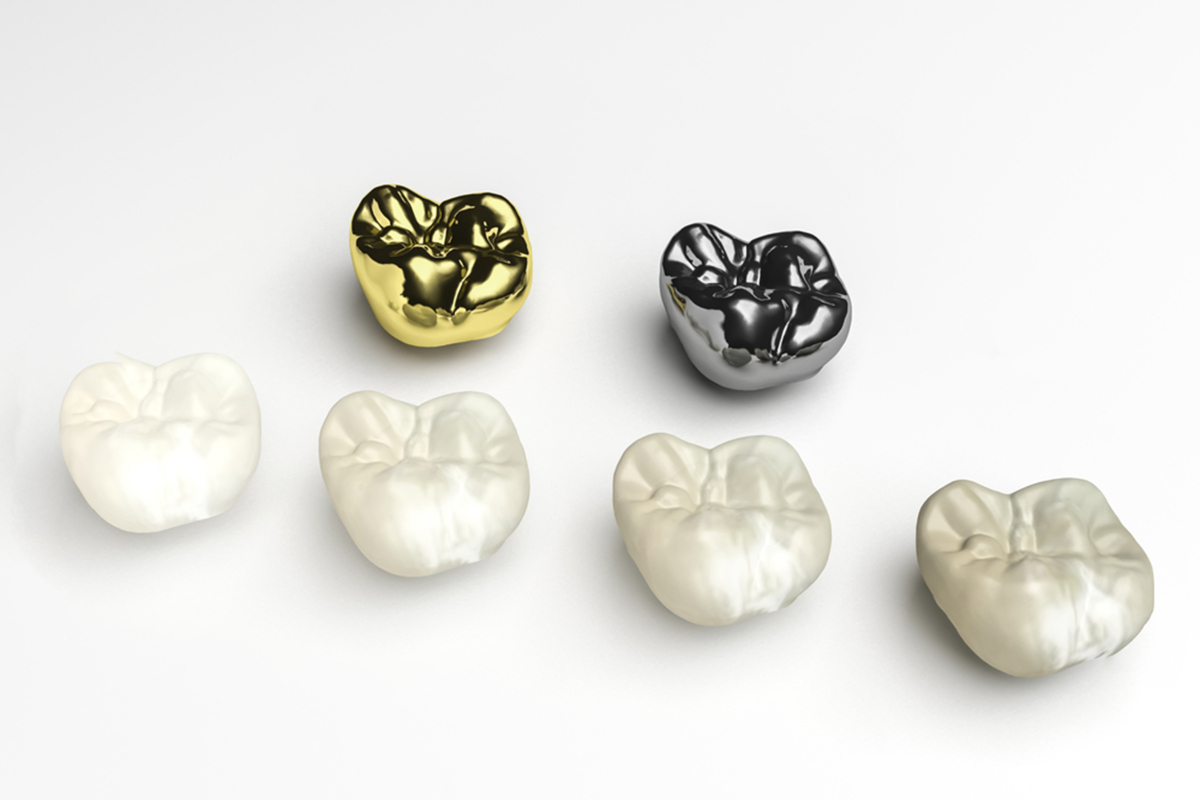Dentists use crowns on patients of all ages — from children to seniors — in a surprisingly broad range of situations: to return strength to damaged and weak teeth; to restore worn-down teeth; to protect teeth that have lost too much structure to large cavities; to perfect misshapen teeth; to perfect teeth tainted by stains and discolouration that can’t be whitened away; and even to hold bridges in place to replace missing teeth.
If you have dental needs that fall into any of those categories, ask your dentist in Kitchener if crowns may be the right solution for you.
What is the process of getting crowns?
The process of receiving traditional dental crowns in Kitchener typically takes a couple of appointments over a few-week period that will include: preparing your teeth by removing a small layer of enamel; taking impressions; crafting your crowns; test-fitting your crowns; and bonding your crowns to your teeth. Many dentists can also provide you with same-day crowns in a single appointment while you wait in the dental office using computer-aided design and manufacturing (CAD/CAM) software and technology.
What are dental crowns made of?
Dental crowns near you are made from five different kinds of materials that offer advantages and disadvantages. Which material a dental clinic near you will use for your crowns depends on your particular needs and circumstances.
A wide range of metals — including gold, chromium, nickel and palladium — create the longest-lasting crowns that require the least removal of enamel from your tooth. Metal crowns’ ability to hold up to the highest biting and chewing forces in your mouth makes them an ideal option for molars. Their metallic colour makes them a less appropriate choice for highly visible teeth.
Porcelain-fused-to-metal (PFM) crowns can be tinted to match the colour of other teeth in your mouth, making them an appropriate option for visible teeth in the front of your mouth as well as in the back of your mouth. The disadvantage of PFM crowns is that the metal framework underneath the porcelain layer can appear through the porcelain layer as a dark shadow-like line.
All-resin crowns are typically the least expensive option, but they typically have the shortest lifespan because they wear down more quickly than others. They’re also more easily broken than PFM crowns.
All-ceramic or all-porcelain crowns off all the advantages of PFM crowns — a natural appearance — without the disadvantages of the PFM option — the shadow line. All-ceramic or all-porcelain crowns are excellent options for people allergic to metals but aren’t as strong as PFM crowns due to the absence of the metal framework beneath the porcelain layer.
Pressed ceramic crowns don’t have a metal lawyer like PFM crowns. Instead, that metal layer is replaced with a layer of pressed ceramic. That layer will be covered with a further layer of natural-appearing porcelain. Pressed ceramic crowns last longer than all-porcelain crowns.
How long will crowns last?
The lifespan of crowns provided by Laurentian Dental Centre will vary depending on several factors, especially the materials used to make those crowns, the location of the crowns in your mouth and how well you maintain the health of the teeth under your crown. As a general rule, you can expect dental crowns to last for five to 15 years before needing to be replaced. To prolong the life of your crowns as long as possible, here are four bad and harmful habits to avoid:
- Clenching your jaw and grinding your teeth. (If you have this habit, ask a dentist near you to fit you with a custom mouthguard to protect your teeth.)
- Chewing ice, hard candy or pencils
- Biting your fingernails
- Using your teeth to hold hard objects, twist bottle caps and similar objects and to open packages. (Instead, try using tools, bottle openers and scissors!)
Ask the staff at a dental office in Kitchener if dental crowns are an appropriate option for helping you achieve your teeth-related goals.
Relevant Link :


